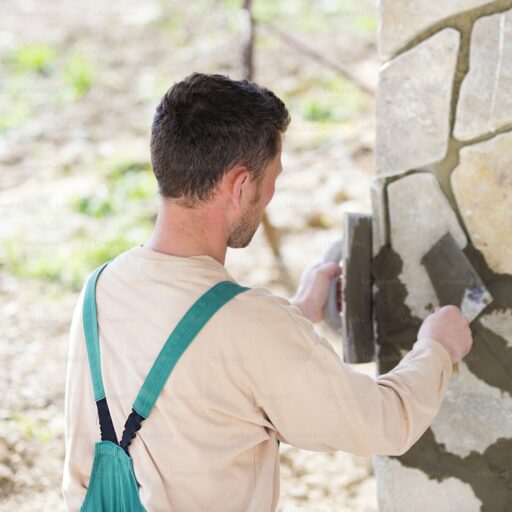Let’s get something straight: sandstone is one of the most underrated natural materials out there. Whether you’re sprucing up your backyard or adding some rustic charm to your home, sandstone has likely popped up on your radar. But chances are, you’ve also heard a few misconceptions that might’ve made you hesitate. Let’s change that. In this guide, we’re diving deep into the 8 most common myths about sandstone—and busting them one by one.
Myth #1: Sandstone Is Not Durable
The Truth About Sandstone’s Strength
You’ve probably heard that sandstone is soft or brittle. That’s a myth. In reality, high-quality sandstone is incredibly durable and can last for decades when properly maintained. Think about it—it’s formed over millions of years. If Mother Nature thinks it’s strong enough to survive for eons, it can definitely handle your patio.
Real-World Uses That Prove Its Toughness
From ancient temples to modern driveways, sandstone’s been used in structures that are still standing tall today. Take a look at Southern Stoneworks’ boulders and steps to see examples of how sandstone holds up in rugged applications.

Myth #2: Sandstone Is All the Same
Variety in Texture, Color, and Composition
One of the coolest things about sandstone? No two pieces are identical. Sandstone comes in various shades—red, brown, yellow, and even green—depending on the minerals it contains.
Know Your Options: Not Just Beige Blocks
Thanks to companies like Southern Stoneworks, you can choose from options like natural stone slabs and sandstone veneers, making customization a breeze.
Myth #3: Sandstone Is Hard to Maintain
Easy Sandstone Maintenance Tips
Contrary to popular belief, sandstone is low-maintenance. A simple routine of cleaning and sealing once or twice a year keeps it looking brand new.
Preventing Erosion and Staining
Use a mild detergent and soft brush for stains. Want more in-depth care tips? Southern Stoneworks provides a full sandstone maintenance guide.
Best Practices for Longevity
Avoid acidic cleaners and power washing. Trust us, your sandstone will thank you. And if it’s sealed right, water won’t stand a chance of soaking in.
Myth #4: Sandstone Is Only for Outdoor Use
Stunning Indoor Sandstone Design Ideas
Sandstone isn’t just for patios and paths. It’s perfect for indoor applications too! Think kitchen backsplashes, bathroom walls, and even cozy fireplaces.
From Fireplaces to Flooring
Need inspiration? Southern Stoneworks offers amazing sandstone design ideas that’ll transform your space.
Myth #5: Sandstone Can’t Handle Weather Changes
How Sandstone Reacts to Freeze-Thaw Cycles
You might worry that sandstone cracks in cold weather. While any stone can suffer if neglected, properly sealed sandstone easily withstands freeze-thaw conditions.
Why It’s Still a Top Pick for Landscaping
Because of its porous nature, it adapts better than you’d expect. Explore pavers and flagstone for designs that marry style with resilience.
Myth #6: Sandstone Doesn’t Look Luxurious
Natural Elegance and Aesthetic Appeal
If luxury is your vibe, sandstone has your back. With its naturally textured surface and earthy tones, it fits right into upscale designs.
Why Designers Love It
Interior designers love sandstone because it brings warmth and timelessness to both rustic and modern aesthetics.
Myth #7: Sandstone Is Too Expensive
Cost vs. Value: A Budget-Friendly Gem
Yes, some types of natural stone can be pricey—but sandstone isn’t one of them. You can get high-end looks without breaking the bank.
Affordable Options Like Veneers and Slabs
Check out Southern Stoneworks’ sandstone veneers for cost-effective solutions that still deliver serious visual impact.
Myth #8: Sandstone Isn’t Environmentally Friendly
Sustainability of Natural Stone
Here’s the truth: sandstone is one of the most eco-friendly building materials available. It’s natural, abundant, and recyclable.
Eco-Conscious Landscaping Choices
Using sandstone in your project helps cut down on synthetic materials. Plus, options like wall stone and retaining walls add functionality and style with a minimal carbon footprint.
The Bottom Line: Sandstone Stands Strong
When it comes to building or landscaping, sandstone is a rock-solid choice—pun totally intended. Durable, beautiful, and sustainable, it checks all the boxes. Don’t let these myths hold you back from using a material that has stood the test of time—literally. Dive into the world of sandstone, and you’ll quickly see it’s as versatile as it is stunning.
Internal Links for Further Reading
- Southern Stoneworks LLC – Homepage
- Sandstone Maintenance
- Sandstone Design Ideas
- Sandstone Basics
- Boulders & Steps
- Natural Stone Slabs
- Pavers & Flagstone
- Sandstone Veneers
- Wall Stone & Retaining Walls
FAQs
1. Is sandstone suitable for all climates?
Yes! When sealed properly, sandstone handles both hot and cold climates well, including freeze-thaw cycles.
2. How do I clean my sandstone surfaces?
Use a mild soap and water solution with a soft brush. Avoid acid-based cleaners.
3. Can sandstone be used indoors and outdoors?
Absolutely. It’s ideal for both environments, from patios to kitchen walls.
4. What are the color options for sandstone?
Sandstone comes in a wide range of colors including red, tan, brown, yellow, and even green.
5. Is sandstone environmentally friendly?
Yes. It’s a natural, abundant, and recyclable material.
6. How often should sandstone be sealed?
It’s recommended to seal sandstone every 1–2 years for best results.
7. Is sandstone a cost-effective option?
Definitely! It offers a high-end look at a more budget-friendly price compared to other natural stones.

